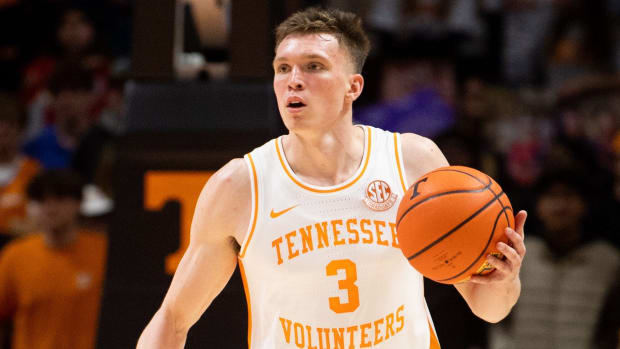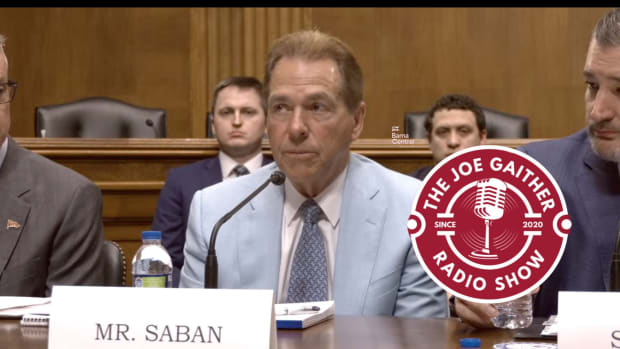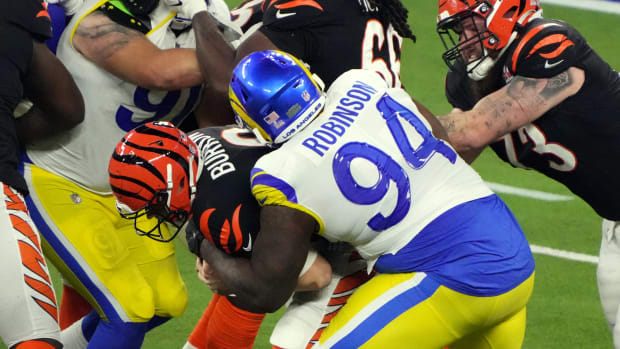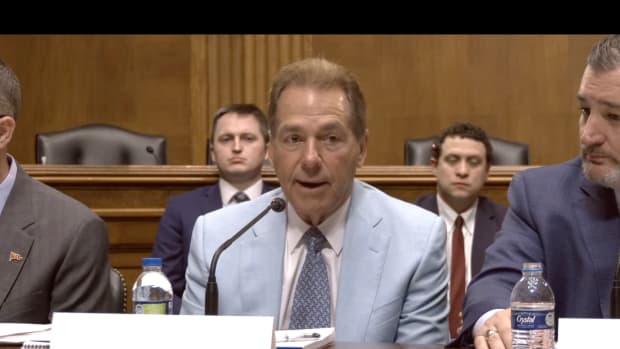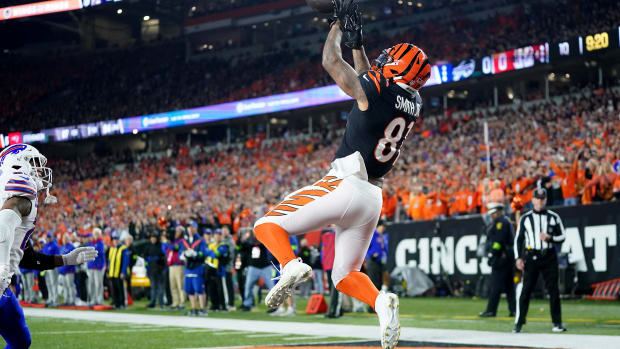H2 For You: Texas' Steve Sarkisian is the Envy of Few, Not Many
You’d think Texas is on par with Oklahoma, Alabama, and other powers in the historical context of college football, particularly if your collective guide is the innumerable amount of burnt orange-sporting fans.
But Texas football is, in fact, not back. Not now, not under Tom Herman, not under Charlie Strong, and who knows when.
Its, let’s face it, ugly 41-20 loss to soon-to-be reborn rival Arkansas is a hand resisting the urge to pull the alarm, if only in the sense of a prolonged restoration period, surely most of all to first-year coach Steve Sarkisian who left for Texas following a two-year stint as the offensive coordinator at Alabama.
It was underwhelming, and glaringly-deficient of production and points that we’d become accustomed to seeing the Crimson Tide put up under his play calling.
In one offseason, Sarkisian couldn’t have possibility improved the state of the program that much, and exactly that was reflected on the road in Fayetteville after Texas opened its 2021 campaign with a home win to Louisiana, 38-18.
The Longhorns’ decade-long inability to recapture a past, a past overwhelmed by nostalgia and success more and more distant to younger generations, makes me question what "back" means for Texas football to begin with. And it makes me envy Sarkisian’s job less and less, the (enviable) paycheck notwithstanding.
There’d be long days, inevitably, as there were for his former boss Nick Saban upon arrival to Alabama, like the home loss to Louisiana Monroe late in his debut season of 2007, but there's more needed improvements than I realized prior to last Saturday night.
Not to compare contrasting resumes, though, and not to foreshadow anything anywhere close to Saban’s success.
Texas, after all, hasn’t produced back-to-back 10-win seasons since 2008 and 2009, and its metaphorical cliff was the queasy-induced symbolism of quarterback Colt McCoy grabbing his limp shoulder in the early minutes of the Longhorns’ loss to Alabama in the BCS National Championship in January of 2010.
And the loss to Arkansas further reminded everyone watching just how wide the gap’s gotten since McCoy last played in college more than a decade ago, to the dissatisfaction now challenging Sarkisian’s stoicism at a cellular level.
It's no secret, the Longhorn program isn’t close to an equal of immediate rival Oklahoma, even with its four national titles, considering the Sooners boast seven national crowns and six consecutive Big 12 titles, nor is it a worrisome adversary, minus National Signing Day, to Alabama and fellow, annual College Football Playoff contenders like Georgia, Clemson, and Ohio State.
In all this mess and dysfunction that’s Texas football, people have hardly noticed what’s become an absolute, underlying truth, too: Texas is more a basketball school than a football school, if only recently, and its supporters should rationalize it because, since 2010, there’s hardly a light and hardly a tunnel in the instant-gratification sport of which it claims to be a pillar.
But we’re not talking about practice, to the delight of Allen Iverson, we’re talking about Hook 'em Horns, and that just won’t happen; it’s a football school, hints no deference and no acquiescence.
What will happen, though, is Texas basketball’s success under newly-hired coach Chris Beard indirectly tightening the leash that is Sarkisian’s employment at the university.
Hyperbolic, presumptuous, whatever you want to call it is fine, but being the head football coach of the Texas Longhorns is hard enough without a cross-campus colleague building a championship-level program almost overnight.
A head coach with a national championship appearance, check. Beard’s previous stop, Texas Tech, was national runner-up to Virginia in 2019. More notable former players in the pro game i.e., LaMarcus Aldridge, Myles Turner, PJ Tucker, and Kevin Durant, check.
There’s also clear momentum and direction under Beard, who was hired a few months after Sarkisian, and Texas is a top-five team in pretty much any preseason college basketball poll you pull up.
Yep, that quick of a rebuild.
Shaka Smart left the program in no better shape than Tom Herman when he was let go as head coach, either, particularly since Texas missed the NCAA Tournament two out of the last four seasons. And Longhorn hoops still paved a path to winning basketball games at a high clip just months later thanks to its coach’s ability to need only a short time to swap the compass.
Different sport, different model, sure, and it’s easier to overhaul a 13-scholarship roster as Beard has than it is dealing with 85 football players who are, in Sarkisian’s case, indifferent to, opposed to, or have one eye in the NCAA Transfer Portal upon first impressions of his stoic demeanor.
It’s a different ballgame as a college football coach, one with more pressures at a place like that, granted, but meanwhile, Texas basketball enters 2021-22 as a presumed favorite to win its conference, this after losing three players drafted to the NBA in Kai Jones, Jericho Sims, and Greg Brown.
Subsequently, influencers of Texas football and, by proxy, Sarkisian's future job security aren’t limited to just those outside city limits.
And no one there in power would admit it, but Sarkisian’s grace period likely would’ve extended longer had it not been for Longhorn basketball making not a splash, but a cannon ball-type hire at the expense of football-related expectations, with ripple effects still too premature to gauge entirely.
There are just no excuses for Sarkisian after a short while, though, not in Austin, and he’ll have to match the success of the basketball program here soon because, even if Beard only needs 10 years to match John Wooden’s 10 rings, football reigns in Texas, to a fault that is.
